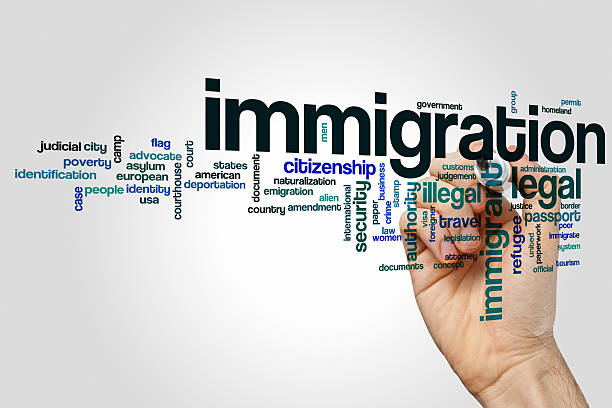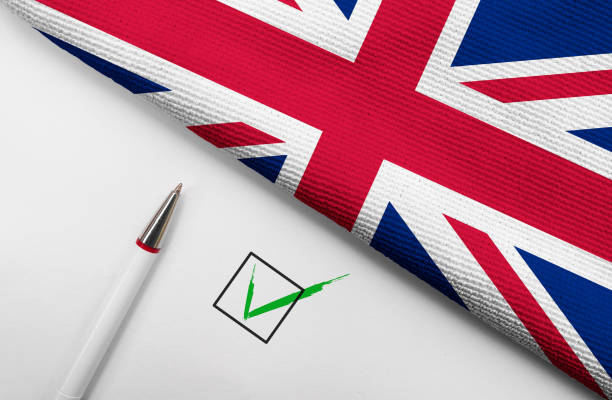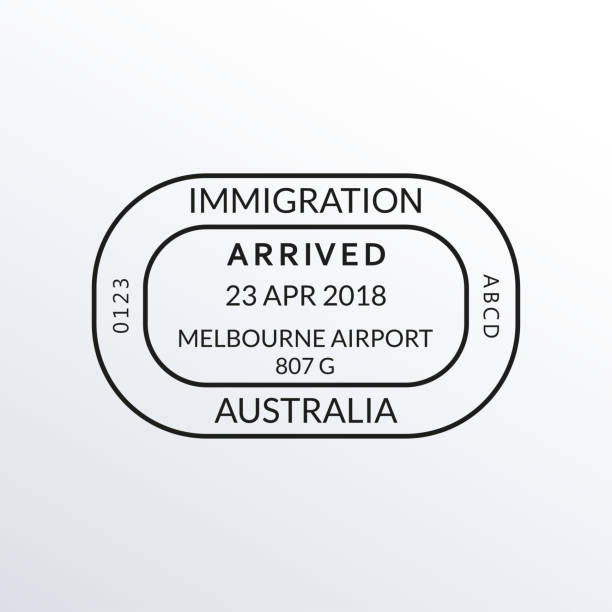Are you looking for some information about Immigration Law Melbourne? Here’s an article that can help you with your migration journey?
For centuries, people from all over the world have come to Victoria to seek a better life. They have come to escape war, poverty, and persecution. They have come to pursue their dreams of education, employment, and homeownership. In this article, we will provide you with a comprehensive overview of immigration law Melbourne.
Immigration Law Melbourne: The Migration Process
You might be wondering, “Where do I start?” Well, here are five basic steps to start your migration process to Melbourne if you are looking to move for skilled work purposes:
- Look for a job in Melbourne.
- Apply for a visa nomination.
- Apply for a visa.
- Prepare to move in.
- Arrive and settle in.
Getting a Job in Melbourne
Whether you’re a fresh graduate, a seasoned professional, or a skilled worker from overseas, Melbourne has something to offer everyone. Below is an outline of how to go about looking for employment options and getting a job in Melbourne as the first step in your Australian immigration process:
A. Before Arriving in Melbourne:
- Collate important documents such as your resume, qualifications, and references.
- Compile your employment history.
- Ask for testimonials and references from previous employers.
- Join an industry association and start building your own networks of people to help you connect with the hidden job market.
- Research the kinds of networks available in the area you plan to live.
- Use Australian job websites to research opportunities online and familiarise yourself with the Australian job market.
- Make a list of the recruitment companies in Victoria that specialise in your field and contact them.
B. After Arriving in Melbourne:
- Look for jobs advertised in newspapers and online job websites.
- Join service clubs in the community, such as Rotary, Lions, and Apex.
- Contact local business associations such as traders groups and chambers of commerce.
- Join relevant interest groups and local employer groups on LinkedIn, and join in their online conversations.
- Participate in volunteer work.
You should check out the Live in Melbourne website to learn more about getting a job in Melbourne. The website provides helpful information about immigration law Melbourne, how to apply for a job in Melbourne, understand Australian advertisements, and prepare for job interviews.
Finding a Home
Another important thing that you must look into is finding a home in Melbourne. You can either rent or buy a house, if you have the budget. If you already know the Melbourne neighbourhood where you want to buy a home, that’s great! But if you’re not sure where to start, it’s worthwhile to take a look in a variety of places.
Similar to how various properties within a single suburb can vary greatly in price, so can adjacent suburbs. It’s important to look up previous selling prices in the neighbourhoods and streets you’re interested in. You can contact a real estate agent to help you with the process.
You can use this relocation checklist when you’re preparing to move to Melbourne.

Applying for a Visa Nomination
Immigration law Melbourne offers specific types of visas for different purposes. However, Australian state and territory government organisations may evaluate your application when you submit it through SkillSelect and choose whether to nominate you for a visa.
If you are nominated by a state or territory, that entity is informing the Department of Home Affairs that your knowledge and experience are required there. According to immigration law Melbourne, your chances of obtaining an Australian visa can be increased through nomination. Moreover, there’s no fee for the Victorian visa nomination.
Immigration law Melbourne states that some visas demand a state or territorial government’s nomination. The Victorian Government gives visa nominations to a select group of skilled, business, and investor migrants who possess the business acumen and skill sets required to make Victoria’s sectors competitive internationally.
These visas are eligible for nomination:
- Business and investor visa. The Business and Investment Visa in Australia is a type of visa that allows individuals to invest in Australian businesses or start their own business in Australia. There are different types of Business and Investment visas available in Australia, including provisional and permanent visas.
- Skilled migration visa. The Skilled Migration Program in Australia is designed to attract migrants who can make a significant contribution to the Australian economy and fill positions where no Australian workers are available. Skilled migrants have high participation rates in the workforce, which helps stimulate economic growth and results in more jobs. Employer sponsored visas are also another option for overseas workers.
The Visa Process
The Australian visa application process can be complex, but it’s important to get it right. After all, your visa is your ticket to living and working in Australia. Here are some tips for a successful visa application:
- Choose the right visa. There are many different types of visas available, so it’s important to choose the one that’s right for you. Consider your purpose for visiting Australia and your long-term goals.
- Meet the eligibility requirements. Each visa has its own eligibility requirements, so make sure you meet them all before you apply. You can find the eligibility requirements on the Australian government’s website.
- Gather all the required documentation. The required documentation varies depending on the visa you’re applying for, but most visas require you to provide a passport, passport-sized photos, and proof of your financial support.
- Submit your application correctly. Once you’ve gathered all the required documentation, you’re ready to submit your application. Be sure to follow the instructions carefully and complete all the required fields.
Types of Permanent Work Visas
1. Regional Visas. This type of visa is for skilled migrants to live and work in regional Australia.
- Regional Sponsor Migration Scheme (subclass 187) – requires sponsorship
- Permanent Residence (Skilled Regional) Visa (subclass 191)
2. Skilled Migration Visas. This one is for skilled migrants who want to live and work anywhere in Australia:
- Employer Nomination Scheme visa (subclass 186) – requires sponsorship
- Skilled Independent visa (subclass 189)
- Skilled Nominated visa (subclass 190) – requires sponsorship
- Skilled Regional visa (subclass 887)
3. Business Investment Visas. This type is for entrepreneurs, investors, and company owners to continue their operations in Australia and to start new ventures or expand already established ones.
- Business Innovation and Investment (Permanent) visa (subclass 888) – requires sponsorship
- Business Talent (Permanent) visa (subclass 132) – requires sponsorship
4. Global Talent Visas. This is for applicants under the Global Talent Pathway and the Distinguished Talent Pathway who have a history of extraordinary and excellent success in an area that qualifies.
- Global Talent visa (subclass 858) – requires visa nomination
With all these kinds of visas and their varying requirements, getting help from a migration lawyer would really make the process lighter for you and your family. They can also help you understand more about immigration law Melbourne and give you assistance during the entire process.

Get a Personalised Assessment From Our Immigration Lawyers
If you’re serious about migrating to Victoria, Australia, hiring Australian immigration lawyers is the best way to increase your chances of success. Our experienced immigration lawyers and migration lawyers at JB Solicitors have the expertise and experience to help you:
- Choose the right visa and meet all eligibility requirements under the immigration law, migration law, and citizenship law
- Lodge appeals at the Administrative Appeals Tribunal in cases of visa refusals
- Gain Australian permanent residency
- Contact NZ Immigration Services if you are from New Zealand
- Represent yourself at the Federal Circuit Court
- Help in various visa types aside from work visas such as partner visas (temporary and permanent partner visa), a protection visa, or a student visa.
- Understand Australia’s immigration laws and how to comply with legal requirements
Book a consultation with us today and start your journey to Victoria, Australia.
